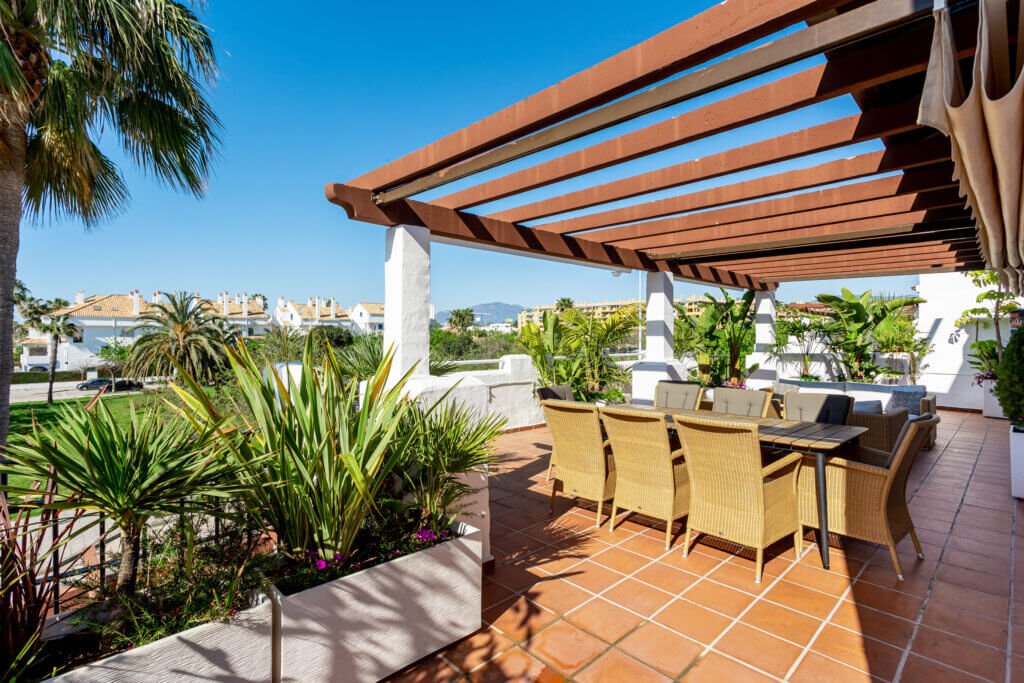How to Buy a Property in Spain: A Comprehensive Guide to Property buying cost
Are you dreaming of owning a piece of paradise in Spain?
Whether you’re considering a vacation home, investment property, or permanent residence, the Spanish real estate market offers a wide range of options.
But before you dive into this exciting venture, it’s crucial to understand the process of buying property in Spain.
This comprehensive guide aims to simplify your journey, providing valuable insights and practical tips to make your purchase a success.

How to Buy a Property in Spain
Spain offers a vibrant and diverse real estate market, attracting buyers from around the world. From stunning coastal villas to charming countryside retreats, there’s a property to suit every taste and budget. To help you through the buying process, we’ve outlined the essential steps below:
Step 1: Define Your Requirements and Budget
Before embarking on your property search, it’s important to clearly define your requirements and establish a realistic budget. Consider factors such as location, property type, size, amenities, and proximity to essential services. By having a clear vision of your ideal property, you can streamline your search and focus on suitable options.
Step 2: Engage a Reputable Real Estate Agent
Navigating the Spanish property market can be complex, especially for foreigners. To ensure a smooth experience, it’s advisable to engage a reputable real estate agent specializing in the area of your interest. A knowledgeable agent can guide you through the process, provide expert advice, and help you find the best properties that match your criteria.
Step 3: Conduct Thorough Property Research
Once you’ve selected an agent, it’s time to dive into the exciting world of property research. Browse listings online, visit property exhibitions, and explore various neighbourhoods to get a feel for the market. Make a shortlist of properties that catch your eye and arrange viewings to evaluate them in person. Don’t rush this process – take your time to ensure you find the perfect property.
Step 4: Due Diligence and Legal Checks
Before proceeding with a property purchase, it’s crucial to conduct due diligence and legal checks to avoid unpleasant surprises. Hire a qualified lawyer who specializes in Spanish property law to review the legal documentation, verify ownership, check for any outstanding debts or liens, and ensure all permits and licenses are in order. This step is vital to protect your investment and avoid potential complications.
Step 5: Financing Options and Mortgage Considerations
If you require financing for your property purchase, explore the available options and consult with financial institutions that offer mortgage loans to foreigners in Spain. Understand the eligibility criteria, interest rates, repayment terms, and associated costs.
A mortgage broker can assist you in finding the best mortgage solution that aligns with your financial goals.
Step 6: Making an Offer and Negotiating
Once you’ve found your dream property and completed the necessary due diligence, it’s time to make an offer. Your real estate agent can guide you through the negotiation process, helping you determine an appropriate offer price based on market conditions and the property’s value. Be prepared for counteroffers and be open to compromise to reach a mutually beneficial agreement.
Step 7: Signing the Purchase Agreement
When your offer is accepted, you’ll proceed to sign the purchase agreement, known as the “Contrato de Compraventa.”
This legally binding document outlines the terms and conditions of the sale, including the purchase price, payment schedule, and completion date. Have your lawyer review the contract before signing to ensure all the necessary protections are in place.
Step 8: Completion and Property Registration
On the agreed completion date, the final payment is made, and the property ownership is transferred to you.
The notary public oversees this process and ensures that all legal requirements are met.
Following completion, your lawyer will handle the registration of your property with the Land Registry, providing you with official proof of ownership.
Property Purchase Costs in Andalucía, Spain:
- Purchase Price: The purchase price of the property is the primary cost to consider. It varies depending on factors such as location, size, condition, and amenities. It’s essential to engage the services of a reliable real estate agent or property developer to assist you in finding suitable properties within your budget.
- Taxes: When purchasing a property in Andalucía, several taxes are applicable.
The main taxes to consider include:
a. Value Added Tax (IVA):
- For new properties, IVA is applicable and typically amounts to 12% of the purchase price.
- For re-sale properties, IVA may not apply, but the Transfer Tax (Impuesto de Transmisiones Patrimoniales) is applicable and can range from 8% to 10% of the purchase price.
b. Stamp Duty (Actos Jurídicos Documentados):
- This tax is levied on the documented legal transaction and is approximately 1% of the purchase price.
- Notary and Land Registry Fees:
- Notary fees: These fees are associated with the notarization of the purchase deed and typically amount to around 0.5% to 1% of the purchase price.
- Land Registry fees: These fees are for registering the property in your name and generally range from 0.2% to 0.5% of the purchase price.
- Legal and Administrative Fees:
- Legal fees: It is advisable to hire a lawyer to handle the legal aspects of the property purchase. Legal fees , plus VAT, are typically around 1% of the purchase price.
- Administrative fees: These fees cover administrative tasks and documentation related to the purchase and can range from 0.5% to 1% of the purchase price.
- Mortgage Costs (if applicable):
- If you require a mortgage to finance your property purchase, there may be additional costs such as appraisal fees, mortgage arrangement fees, and mortgage-related taxes. These costs vary depending on the mortgage provider and the specific terms of the loan.
- Other Costs:
- Property survey fees: If you choose to conduct a property survey for due diligence purposes, there may be additional survey fees.
- Home insurance: It is recommended to have adequate home insurance coverage, and the cost will depend on the value and type of property.
- Utilities connection fees: When purchasing a property, you may need to pay connection fees for utilities such as water, electricity, and gas.
Table: Property Purchase Costs Breakdown
| Cost Category | Approximate Percentage of Purchase Price |
| Value Added Tax (IVA) | 10% (for new properties) |
| Transfer Tax | 7-10% (for re-sale properties) |
| Notary Fees | 0.5-1% |
| Administrative fees | 0.5-1% of the purchase price |
| Mortgage costs (if applicable) | Varies based on loan terms and interest rates |
| Home insurance | Dependent on property value and type |
| Utilities connection fees | Varies based on specific utility providers |
FAQs: Answers to Your Burning Questions
Can foreigners buy property in Spain?
Absolutely! Spain welcomes foreign buyers and offers them the same property rights as Spanish citizens. However, it’s essential to be aware of the legal requirements and seek professional guidance throughout the process.
Are there any restrictions on property ownership in Spain?
Generally, there are no restrictions on property ownership for EU citizens. Non-EU citizens may need to obtain permission from the Spanish authorities, but this is typically a straightforward process.
What additional costs should I consider when buying property in Spain?
In addition to the property price, buyers should budget for additional costs such as transfer taxes, notary fees, legal fees, and registration fees. It’s crucial to factor these expenses into your budget to avoid surprises.
Do I need a Spanish bank account to buy property in Spain?
While having a Spanish bank account is not a legal requirement, it can be beneficial for managing your finances, paying bills, and setting up automatic payments for utilities and property-related expenses.
Can I get a mortgage as a foreigner in Spain?
Yes, it’s possible for foreigners to obtain a mortgage in Spain. Many Spanish banks offer mortgage loans to non-residents, but the eligibility criteria and loan terms may vary. Consult with financial institutions or a mortgage broker to explore your options.
Should I hire a lawyer when buying property in Spain?
Engaging a lawyer specializing in Spanish property law is highly recommended. They will protect your interests, conduct legal checks, review contracts, and guide you through the entire buying process.
Conclusion:
Your Dream Home Awaits
Buying a property in Spain can be an exciting and rewarding experience, provided you approach it with the right knowledge and guidance. By following the steps outlined in this comprehensive guide, you’ll be well-prepared to navigate the Spanish real estate market successfully.
Remember to seek professional advice, conduct thorough research, and enjoy the journey of finding your dream property in sunny Spain.

